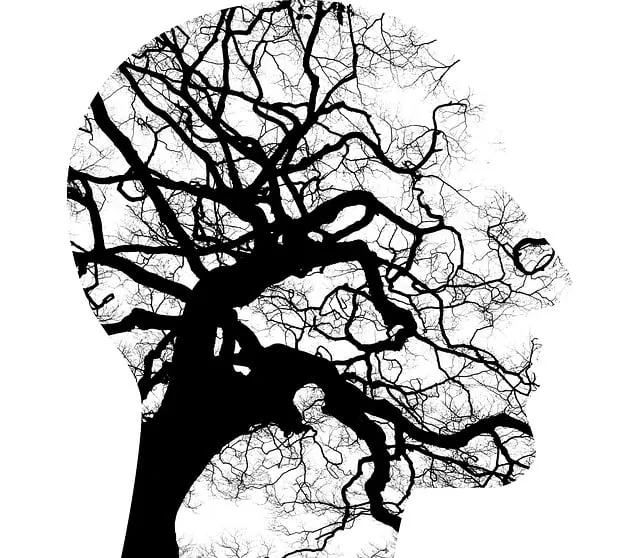The Kaiser Permanente mental health center in Littleton emphasizes the importance of early detection and prevention for depression, highlighting subtle symptoms and risk factors. They promote self-care practices, lifestyle changes (exercise, diet, sleep), and cognitive behavioral therapy (CBT) as effective strategies. Building a strong support network through community interventions is crucial, along with professional care options like medication management and therapeutic exercises, all backed by positive Kaiser Permanente mental health center reviews Littleton outcomes.
Depression is a prevalent yet manageable condition, and proactive strategies can significantly reduce its impact. This article explores evidence-based approaches to prevent depression as reviewed by the Kaiser Permanente Mental Health Center in Littleton. From understanding key signs and symptoms to implementing lifestyle changes like exercise and diet, we delve into effective methods. We also examine cognitive behavioral therapy (CBT), building support networks, and when to seek professional help with medication. Armed with these insights from the Littleton reviews, individuals can take control of their mental well-being.
- Understanding Depression: Signs and Symptoms According to Kaiser Permanente Mental Health Center Littleton Reviews
- Lifestyle Changes for Prevention: The Role of Exercise, Diet, and Sleep as Highlighted by the Center
- Cognitive Behavioral Therapy (CBT): Effectiveness and Techniques Reviewed by the Mental Health Center
- Building a Support Network: The Impact of Social Connections and Community Resources as Noted in Littleton Reviews
- Professional Help and Medication: When and How to Seek Assistance According to Kaiser Permanente's Guidance
Understanding Depression: Signs and Symptoms According to Kaiser Permanente Mental Health Center Littleton Reviews

Depression is a common yet serious mental health condition characterized by persistent feelings of sadness, loss, and low mood that significantly impact daily functioning. According to Kaiser Permanente Mental Health Center Littleton reviews, understanding depression involves recognizing its subtle signs and symptoms, which can include changes in appetite, sleep disturbances, fatigue, difficulty concentrating, feelings of worthlessness or guilt, and recurrent thoughts of death or suicide. Early identification is crucial, as it allows for timely intervention and support.
The Kaiser Permanente Mental Health Center Littleton reviews highlight the importance of self-care practices as a preventive measure. Risk management planning for mental health professionals and risk assessment strategies are essential tools to identify individuals at high risk. By staying informed about these signs and symptoms, professionals can provide appropriate care and help those affected by depression before it worsens.
Lifestyle Changes for Prevention: The Role of Exercise, Diet, and Sleep as Highlighted by the Center

Depression is a serious mental health condition that can significantly impact daily life, but it’s not inevitable. The Kaiser Permanente mental health center in Littleton emphasizes lifestyle changes as powerful tools for prevention. Regular exercise, for instance, boosts mood and reduces stress, with even moderate activity showing benefits. Diet also plays a crucial role; foods rich in omega-3 fatty acids and vitamins B and D can improve symptoms, while limiting sugar and processed foods may help stabilise mood.
Quality sleep is another cornerstone of prevention, as it regulates hormones that influence mental health. The center encourages establishing consistent sleep patterns and creating a relaxing bedtime routine. Additionally, mental illness stigma reduction efforts are vital to encouraging individuals to seek support early on. Professionals can contribute by implementing risk assessment strategies and providing Social Skills Training to foster resilience and healthy coping mechanisms.
Cognitive Behavioral Therapy (CBT): Effectiveness and Techniques Reviewed by the Mental Health Center

Cognitive Behavioral Therapy (CBT) has proven to be an effective approach for depression prevention and treatment, as reviewed by the Kaiser Permanente mental health center in Littleton. CBT focuses on identifying and changing negative thought patterns that contribute to low mood and distressing behaviors. By challenging these unhelpful thoughts and replacing them with more realistic and balanced perspectives, individuals can develop inner strength and enhance their ability to manage mood effectively.
The therapy techniques employed by the Kaiser Permanente mental health center involve helping clients recognize triggers and cognitive distortions, such as all-or-nothing thinking or jumping to conclusions. Through structured exercises and practical strategies, CBT equips individuals with tools for crisis intervention guidance, enabling them to navigate challenging situations without resorting to depressive coping mechanisms. This evidence-based approach has shown remarkable results in improving overall well-being and fostering resilience against depression.
Building a Support Network: The Impact of Social Connections and Community Resources as Noted in Littleton Reviews

Building a strong support network is a cornerstone of depression prevention, as highlighted by numerous Kaiser Permanente mental health center reviews Littleton. Social connections play a vital role in fostering resilience and well-being. According to various literature reviews, having a robust network of family, friends, and community resources can significantly mitigate the risk of depression. This support system acts as a buffer against life’s challenges, offering emotional backing, practical assistance, and a sense of belonging.
The Littleton reviews also emphasize the importance of community-based interventions, which can provide accessible and affordable mental health services. These initiatives often include group therapy sessions, peer support groups, and education programs that promote communication strategies for managing anxiety and depression. By fostering open dialogue and connecting individuals with similar experiences, these resources create an environment conducive to prevention and early intervention.
Professional Help and Medication: When and How to Seek Assistance According to Kaiser Permanente's Guidance

Depression is a serious mental health condition that requires professional attention and proper management. According to Kaiser Permanente’s guidelines, if you or someone close to you is experiencing persistent feelings of sadness, hopelessness, or loss of interest in activities once enjoyed, it may be time to seek help from a Kaiser Permanente mental health center in Littleton. These centers offer comprehensive services tailored to individual needs, ensuring a supportive environment for healing and recovery.
Medication can play a crucial role in depression treatment, but it should be accompanied by other therapeutic interventions. Kaiser Permanente suggests consulting a healthcare provider who can assess your symptoms and recommend appropriate medication, typically antidepressants. Along with this, stress reduction methods like Mental Wellness Journaling Exercises (guided by professionals) and practices focused on Stress Management can significantly complement traditional therapy and pharmacology. Reviews from patients at the Littleton location highlight the effectiveness of these integrated approaches in improving mental wellness.
In light of the comprehensive strategies discussed, prevention of depression can be effectively approached through a multi-faceted strategy. Incorporating regular exercise, adhering to a balanced diet, prioritizing quality sleep, and engaging in cognitive behavioral therapy (CBT) as recommended by the Kaiser Permanente mental health center reviews Littleton, can significantly mitigate risks. Additionally, building a robust support network and recognizing when professional help or medication is necessary, as guided by these same reviews, ensures a holistic approach to well-being. By integrating these strategies into daily life, individuals can foster resilience against depression and enhance their overall mental health.






